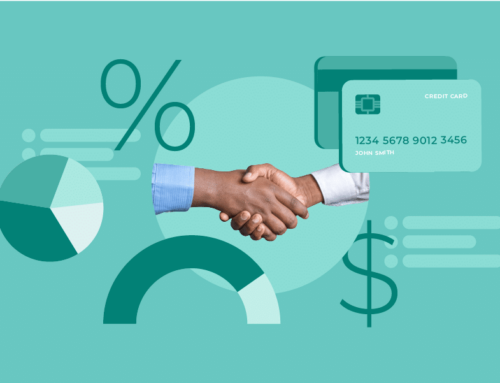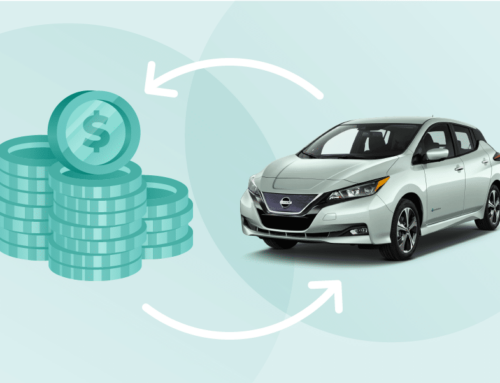Financial literacy is an essential skill. The most financially literate people can make better investments, budget more effectively, and navigate our economic landscape more efficiently. Unfortunately, education on the subject needs to be improved. Not many people understand financial topics in-depth or in a way that would set them up for success.
Do you feel overwhelmed when managing your finances? Do bills, portfolios, credit cards, loans, checking accounts, and savings accounts confuse you? The good news is that there are many ways to improve your financial literacy and, therefore, your financial health.
Let’s discuss what financial literacy is, why it’s important, and how you can improve yours.
What is Financial Literacy?
Financial literacy is the knowledge and skills that empower you to understand and navigate the economy you operate in. Everyone has some degree of financial literacy in Canada, but too many people only grasp the fundamentals instead of the more complicated subjects they deal with every day.
The Canadian federal government launched the Task Force on Financial Literacy in 2009. The Task Force released the “Canadians and Their Money: Building a Brighter Financial Future” report, which breaks down financial literacy’s core components:
- Knowledge is someone’s understanding of both broad and personal financial matters,
- Skills are someone’s ability to apply that knowledge in day-to-day life,
- Confidence is a person’s self-assurance to make significant decisions with said knowledge and skills, and;
- Responsible financial decisions are someone’s ability to use the above and make choices that are best for their own situations.
The more you have of the above, the more financially literate you are. For example, people with less financial literacy often fail to budget wisely or struggle with overspending (shopping with credit cards, for example, is a trap many people fall into because you don’t need to have the money right away). Conversely, someone with high financial literacy makes smarter decisions about saving, purchasing, and investing.
The Importance of Financial Confidence
You’ll notice that confidence is a significant element of financial literacy. Knowledge and skills are essential, but combining them with confidence empowers you to make strategic decisions that benefit you and your family. Financial confidence can help you with the following:
- Setting and sticking to a feasible monthly budget
- Saving for retirement
- Reducing your expenses so you can have more cash for spending and saving
- Investing in the stock market
- Making major purchases, like buying a home or vehicle
- Saving for college and acquiring financial aid
- Using credit cards wisely and maintaining a good score
- Identifying the right insurance policies
- Negotiating terms and interest rates with lenders in your favor
- Managing monthly debt payments
And much more. According to the Social Research and Demonstration Corporation (SRDC), people with more financial confidence typically enjoy better circumstances and outcomes related to day-to-day money management than those who feel doubtful or insecure. Financial knowledge, skill, and confidence have a profound impact on your life. It’s the difference between buying a home with a high-interest rate and for more than it’s worth versus finding a great deal with low closing costs and an interest rate you won’t struggle to pay back in 15 or 30 years.
Financial Literacy in Canada
Too many people in the country are uneducated and ill-prepared about financial matters. This leaves them vulnerable to poor financial decisions and predatory individuals or organizations. According to the “Canadians and Their Money” report, people of all ages struggle with a lack of financial literacy. Only 51% of interviewees had a budget, and 31% struggled to pay bills. Similarly, 70% of respondents believed their retirement funds would fund their lifestyles in the future, but only 40% were confident in how much they actually needed to save.
The Financial Consumer Agency of Canada also notes that Aboriginal people living off-reserve, residents with lesser access to education, and individuals and families with low income are likely to face higher financial stress. Education doesn’t solve everything, but it’s critical to escaping debt and moving on to healthier financial wellness. Once people improve their financial literacy, they can develop positive money habits and improve their quality of life.
The Best Books and Resources for Financial Literacy
Financial literacy education may be lacking in schools, but it’s not too late to educate yourself through other valuable resources. Here are some of the best books on the topic that should be on your reading list:
- Millionaire Teacher: The Nine Rules of Wealth You Should Have Learned in School, which is a good place to start due to its shorter length and focus on the Canadian system,
- Stop Over-Thinking Your Money: The Five Rules of Financial Success, which dives into basic rules for great financial health, and;
- Money Like You Mean It: Personal Finance Tactics for the Real World, which can teach you how to manage personal finance
Other excellent resources exist besides books, too. One of the best online resources in Canada for financial literacy is Marble. Marble provides:
- Weekly doses of financial literacy through its blog
- Marble Learn, a free financial education platform with courses and bundles about budgeting, debt, credit, mindfulness, and more; and
- The Bread & Honey money podcast, which explores the nitty-gritty details of crucial financial skills.
Marble’s CreditMeds solution also leverages advanced AI and simulators to analyze your personal financial situation. It uses factors like your income, debt, spending habits, assets, and more to generate a personalized debt-relief plan you can follow to improve your financial health. Instead of floundering through financial barriers and wondering what the right course of action is for you, CreditMeds provides step-by-step recommendations catered to your particular situation.
If you want to learn more about how you can improve your financial literacy and how we can help, sign up with Marble today and let’s get you started.






